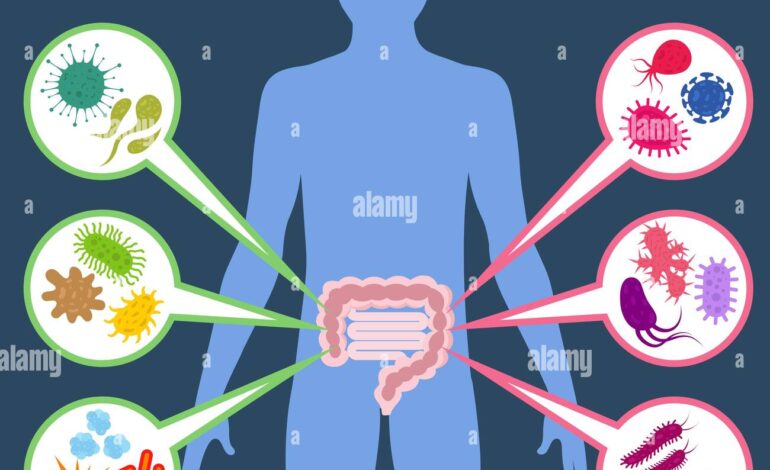Clean Eating & Whole Foods: Your Guide to Natural Benefits

Embracing Clean Eating & the Power of Whole Foods
The buzz around “clean eating” and a focus on whole foods has been steadily growing for years now, but what does it *really* mean? It’s more than just a trendy diet; it’s a philosophy about how we nourish our bodies. This post will delve deep into the principles of clean eating, explore what constitutes “whole foods,” outline the incredible benefits you can expect, and provide practical tips to help you incorporate this approach into your daily life.
What is Clean Eating? Defining the Philosophy
Clean eating isn’t about restrictive rules or deprivation. It’s a mindful approach to food that prioritizes consuming foods in their most natural state – as close to how they are found in nature as possible. At its core, it’s about removing processed and refined ingredients from your diet and replacing them with nutrient-rich, whole foods.
Key Principles of Clean Eating:
- Minimizing Processed Foods: This is the cornerstone of clean eating. We’re talking avoiding packaged snacks, fast food, sugary drinks, and anything loaded with artificial additives, preservatives, and unhealthy fats.
- Prioritizing Whole Foods: Focusing on fruits, vegetables, lean proteins, whole grains, healthy fats, and legumes. These foods provide a wealth of vitamins, minerals, antioxidants, and fiber.
- Reading Labels Carefully: Becoming an informed consumer means understanding ingredient lists. If you can’t pronounce it or don’t recognize it, chances are it shouldn’t be in your diet.
- Cooking at Home More Often: Preparing your own meals gives you complete control over ingredients and portion sizes.
- Mindful Eating: Paying attention to *how* you eat – savoring each bite, eating slowly, and being aware of hunger cues – is an important part of the clean eating philosophy.
Understanding Whole Foods: What Qualifies?
So, what exactly are “whole foods”? Simply put, they’re foods that haven’t been significantly altered from their natural state. Here’s a breakdown:
- Fruits & Vegetables: Think fresh berries, leafy greens, broccoli, carrots – anything you find growing in the ground or on trees, with minimal processing.
- Whole Grains: Oats (not instant!), brown rice, quinoa, whole wheat bread (look for 100% whole wheat as the first ingredient). These grains retain their bran, germ, and endosperm – all packed with nutrients.
- Lean Proteins: Fish (especially fatty fish like salmon), poultry, beans, lentils, nuts, and seeds are excellent choices.
- Healthy Fats: Avocados, olive oil, coconut oil, nuts, and seeds provide essential fatty acids crucial for health.
- Legumes: Beans, lentils, and peas are nutritional powerhouses providing protein, fiber, and complex carbohydrates.
What’s *Not* a Whole Food? Processed foods often undergo several stages of refinement and alteration. Examples include white bread, sugary cereals, packaged snacks with long ingredient lists, refined sugar, and artificial sweeteners.

The Remarkable Benefits of Clean Eating
Switching to a clean eating lifestyle isn’t just about feeling good; it’s backed by a wealth of potential health benefits. While individual results may vary, here are some commonly reported advantages:
- Improved Energy Levels: Nutrient-dense whole foods provide sustained energy throughout the day, unlike the sugar highs and crashes associated with processed foods.
- Weight Management: Clean eating naturally tends to be lower in calories and higher in fiber, which promotes satiety and can aid in weight loss or maintenance.
- Enhanced Digestive Health: The high fiber content of whole foods supports healthy digestion and prevents constipation.
- Reduced Risk of Chronic Diseases: Studies consistently link clean eating patterns with a lower risk of heart disease, type 2 diabetes, certain cancers, and other chronic illnesses.
- Better Skin & Hair Health: The abundance of vitamins, minerals, and antioxidants in whole foods contributes to healthy skin, hair, and nails.
- Improved Mood & Mental Clarity: Nutrition plays a crucial role in brain health. Clean eating can positively impact mood, focus, and cognitive function.
- Stronger Immune System: A diet rich in vitamins and minerals helps bolster your body’s defenses against illness.
Getting Started: Practical Tips for Incorporating Clean Eating
Transitioning to clean eating doesn’t have to be overwhelming. Here are some practical steps you can take:
- Start Small: Don’t try to overhaul your entire diet overnight. Choose one or two areas to focus on first, like swapping sugary drinks for water or replacing processed snacks with fruits and vegetables.
- Read Labels Diligently: Become a label detective! Look beyond the marketing claims and scrutinize ingredient lists.
- Cook at Home More Frequently: Even cooking just a few meals each week can make a difference. Start with simple recipes you enjoy.
- Meal Prep: Preparing ingredients or entire meals in advance saves time and makes it easier to stick to your clean eating goals, especially on busy days.
- Focus on Seasonal Foods: Fruits and vegetables are at their peak nutritional value (and often most affordable) when they’re in season.
- Hydrate with Water: Staying hydrated is essential for overall health and can help curb cravings.
- Don’t Deprive Yourself: Allow yourself occasional treats, but practice moderation and choose healthier options when possible. Clean eating is about balance, not perfection!
Challenges & Considerations
While clean eating offers numerous benefits, it’s important to acknowledge potential challenges.
- Cost: Whole foods *can* be more expensive than processed alternatives, though strategic shopping (buying in bulk, utilizing frozen produce) can help mitigate this.
- Time Commitment: Cooking from scratch takes time, but meal prepping can alleviate this burden.
- Social Situations: Navigating social events and eating out while adhering to clean eating principles may require planning and communication.
Ultimately, clean eating is a journey, not a destination. By embracing the principles of whole foods and mindful consumption, you can cultivate a healthier relationship with food and unlock a wealth of benefits for your body and mind.



